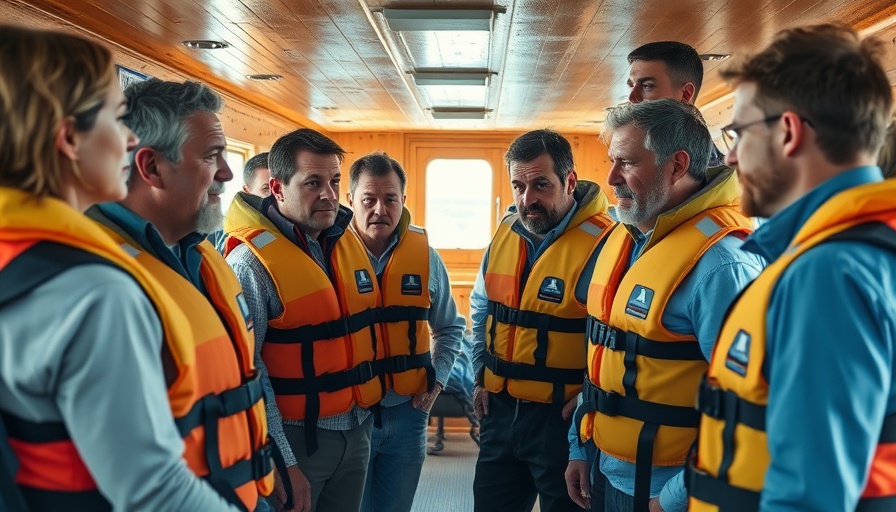
Israel's Claim on Gaza Flotilla: Unpacking the Controversy
Recently, Israel made headlines claiming that the Global Sumud Flotilla (GSF), which was attempting to deliver humanitarian aid to Gaza, carried no supplies but rather activists. This assertion has sparked considerable discussion and outrage among pro-Palestinian supporters and humanitarian advocates. On October 3, 2025, the Israeli Navy intercepted the flotilla during Yom Kippur, a significant day in the Jewish calendar. Israeli officials took to the media, insisting the flotilla was more about garnering attention and social media followers than genuinely providing help to the Palestinian people.
Israeli police spokesman Dean Elsdunne stated, "When we and multiple other countries offered them to take this aid and bring it to the Gazans — we could facilitate its safe arrival — they flat out rejected it.... It was never about bringing aid to Gazans, but it was all about the headlines and the social media followings." Such statements raise serious questions about Israel's perspective on aid and the legality of their naval blockade, especially when international authorities call for humanitarian support to the beleaguered region.
A Response from the Global Sumud Flotilla
In stark contrast to Israeli claims, the GSF has asserted that its ships were loaded with crucial aid including food supplies, baby formula, and medicines intended for Gaza's struggling population. They took to social media platforms after the interception, claiming that their participants were unjustly taken captive and that the interception was illegal. The GSF stated, "Intercepting humanitarian vessels in international waters is a war crime." This highlights a critical aspect of the story—differing narratives around humanitarian missions often protect broader political agendas.
International Reactions and Ramifications
The response to Israel's interception of the flotilla has been decisive on the international stage. Nations such as South Africa, Spain, and others have voiced strong objections to Israel's actions, calling for the release of activists detained during the operation. South African President Cyril Ramaphosa called on Israel to "immediately release" the activists. Media watchdogs, including Reporters Without Borders, have condemned the detention of journalists who were attempting to cover the humanitarian mission, emphasizing that such actions represent a significant violation of press freedoms.
In addition to individual countries, international organizations have expressed concerns regarding Israel’s approach. The International Committee to Break the Siege of Gaza reported that many of those who were arrested during the flotilla's interception have initiated hunger strikes as a protest against their illegal detention, signifying that the situation is increasingly tense and fraught with humanitarian implications.
Legality of Naval Blockades vs. Humanitarian Rights
This situation uncovers a deeper legal and ethical dilemma about naval blockades and how humanitarian aid is classified under international law. Israel maintains the blockade as a national security measure, asserting the necessity of controlling what enters Gaza, asserting that some aid may be diverted to Hamas. However, the legality of targeting humanitarian missions under international law remains contentious. Organizations like the International Transport Workers’ Federation have deemed these actions as illegal, emphasizing that even during conflict, humanitarian missions should not be criminalized.
Future Implications and the Path Forward
As countries continue to grapple with the effects of these interceptions, future aid missions may become increasingly complicated. The Global Sumud Flotilla case shows a significant cleavage between humanitarian intentions and national security narratives. International community pressures may influence future operations, encouraging collaboration over conflict to facilitate aid delivery. Activists argue that no operations carrying humanitarian relief should be thwarted without evidence of malicious intent, urging for more stringent regulations governing the interception of such convoys to prevent potential abuse of power.
As we reflect on the wider implications of this incident, it becomes clear that the complexities of the Gaza conflict are intertwined with global humanitarian efforts. With voices calling for both humanitarian assistance and adherence to international law, the international community must work towards finding common ground to ensure that help reaches those who need it most.
Call for Action: Supporting Humanitarian Aid in Gaza
The interception of the Global Sumud Flotilla serves as a powerful reminder of the urgent need for humanitarian aid in Gaza. As we see countries rallying support, it is crucial for individuals to also advocate for these efforts. Whether through contacting local representatives or supporting humanitarian organizations focused on Gaza, every voice counts. Join the call for humanitarian action—a simple message can ignite change.
 Add Element
Add Element  Add Row
Add Row 



Write A Comment